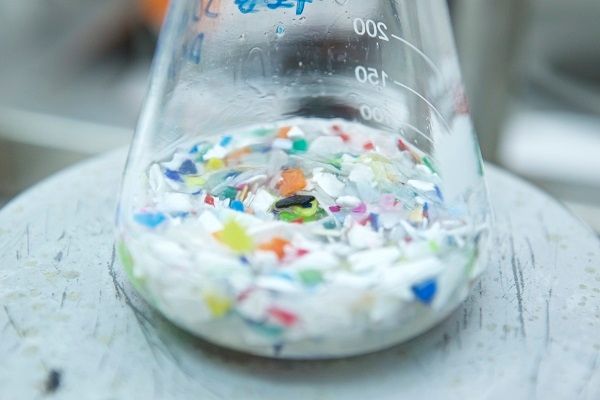Researchers from the University of Alicante Research Group in Waste Management, Energy, the Environment and Nanotechnology (REMAN) have developed a technology for the elimination of odours in plastic materials recycled by steam distillation. This innovation increases the reuse of plastics from domestic and industrial waste as raw material for later use.
This procedure was patented a few months ago and removes pollutants and odoriferous substances from recycled plastics using water vapour, as explained by UA researcher Andrea Cabanes.
A young researcher Andrea Cabanes, and a Professor in Chemical Engineering, Andrés Fullana, dedicated a year and a half to develop this novel invention with great potential for recycling sectors and manufacturing of plastic containers. The significance of this technology lies in the contribution to reduce plastic waste in landfills and increase the quality of recycled domestic containers.
Background:
In 2018, 29.1 million tonnes of plastic waste were generated in Europe, of which 17.8 million tonnes were produced from packaging materials. Of this, 42% was recycled and the rest was incinerated or disposed of in landfills. This means that every year more than 10 million tonnes of plastic waste is not recycled in Europe. In this sense, the technology patented by the UA, in addition to obtaining a clean odour-free product that is fully reusable for other purposes through an environmentally friendly process, allows for the reduction of plastics in landfills.
The materials Andrea Cabanes and Andrés Fullana work with are plastic containers as there is an increasing demand to improve the quality of these recycled materials. However, household plastic waste reusability is limited due to the high content of food waste and cleaning products. According to both researchers, they are absorbed into the polymeric matrix, becoming pollutants and thus, causing the bad smell.
As indicated by the UA researchers, these malodorous substances are volatile organic compounds (VOCs) that cannot be eliminated by conventional washing or mechanical recycling so far. Therefore, there is a need to recycle these plastic wastes as efficiently and environmentally-friendly as possible for later use as raw material. This plastic reprocessing would also help reduce its presence in landfills, reduce production costs in the industries of the sector, and increase the added value of the product.
The process patented by the UA includes several stages. The first consists of the separation and conditioning of the plastic, the second would be the shredding process, the third, the chemical washing using a surfactant (soap), the fourth, the rinsing of the plastic material, the fifth, mechanical drying, and the sixth, the deodorisation of the plastic, which is carried out in a steam distillation column.
Source: University of Alicante website
Packaging 360 is a comprehensive knowledge sharing ecosystem for the Indian packaging industry. Our services include an online content platform to deliver news, insights and case studies; organising conferences seminars and customised training; Providing Bespoke Project Consulting, Market Research and Intelligence.







